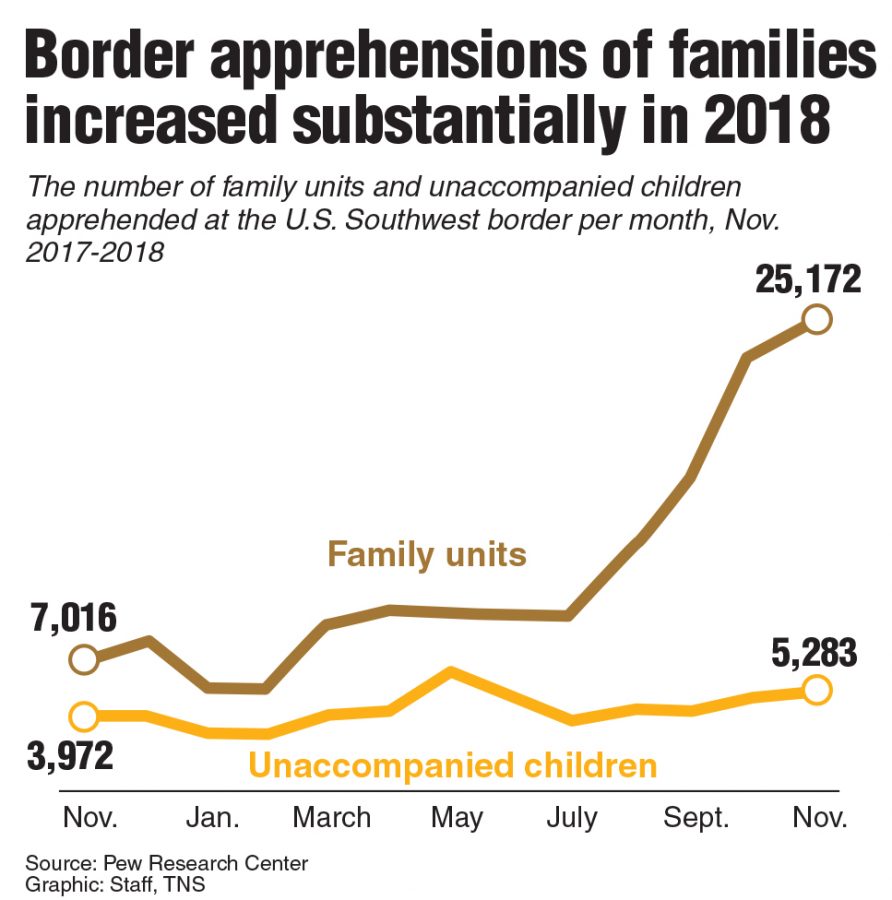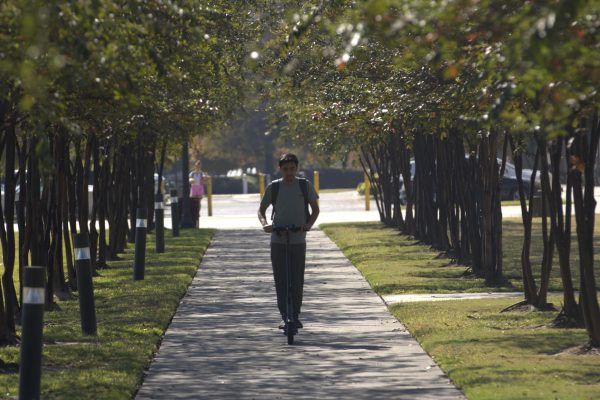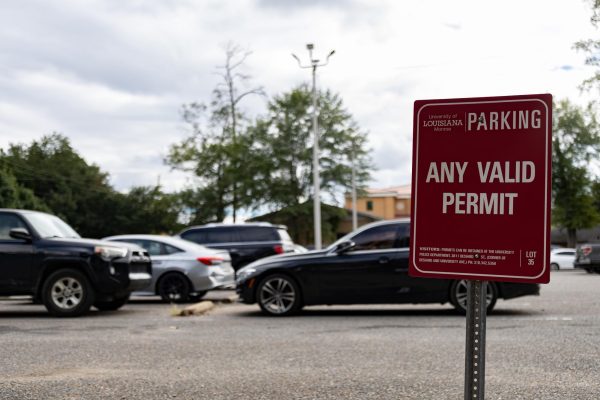Children can’t help being illegal
Chart showing border apptehensions of family units in 2018.
One of the most pressing questions in today’s society is should young illegals have a path to citizenship? My answer is, if they do not cause any problems such as criminal behavior and they contribute to our society, then 100 times yes.
I do believe they deserve a pathway to citizenship and here’s why.
Many times, young illegal immigrants are brought to the U.S. as children by their parents so the first thing we need to understand is that it isn’t their fault that they were brought over here illegally.
They did not make the choice to come over here as illegals. Their parents chose for them.
Another thing we should keep in mind is that these young illegals who were brought over by their parents grow-up in our society, go to our schools and work within our communities usually on student visas or work visas.
Some of these illegals contribute to society more than legal U.S. citizens, but despite all of this, they have no more rights to U.S. citizenship than their parents do. This means if their visas run out, they have to leave again or they are at risk of being deported.
Take Sha Yaa Bin Abraham-Joseph, also known as 21 Savage, for example. 21 Savage is a 26-year-old rapper who is a U.K. native. He came to the U.S. on a one year visa in July 2005.
The rapper was arrested just a few weeks ago during a traffic stop in DeKalb County when the police realized that he and three other people with him had overstayed their visas.
According to The Independent, a British news outlet, 21 Savage’s family overstayed their work visas while he was a minor and that is no fault of his own. But now he is facing possible deployment.
21 Savage has made ties to the community he lives in, works hard at what he does and was not a danger to the community. He was simply a victim of an overstayed visa as a minor that eventually led to his arrest.
The sad truth to this story is that over two million minors have been left without legal statuses and face these charges as well as the fear of deportation.
They are looked at as illegals when it was never their fault that they were brought over here to begin with.
Overall, I believe that young illegals should have a pathway to citizenship if they are able to prove their roles in our society and do not have criminal records.
We could perform background checks, ask for school records, ask for proof that they have a job and are doing their parts in the community.
If all of the background checks and records come back clean, then I believe we should offer them a process that the young illegals can go through in order to obtain citizenship.




